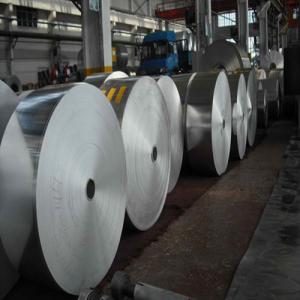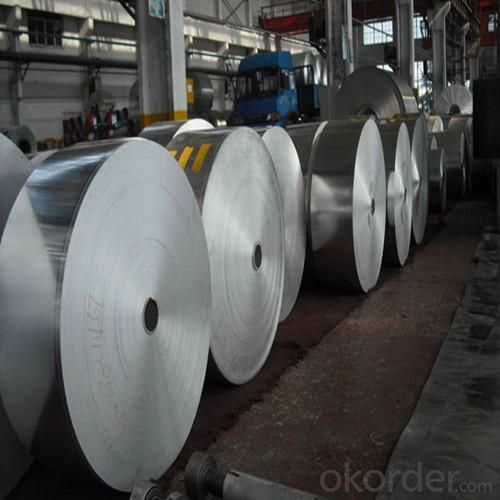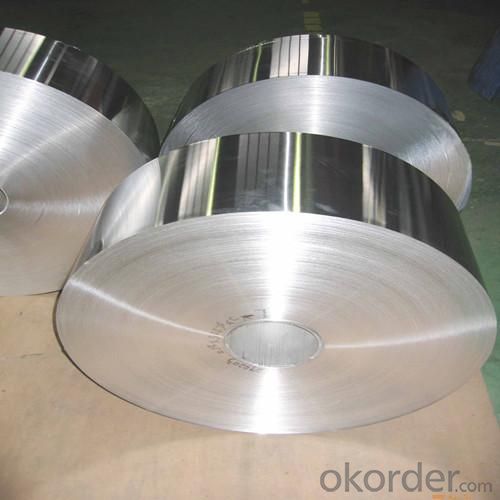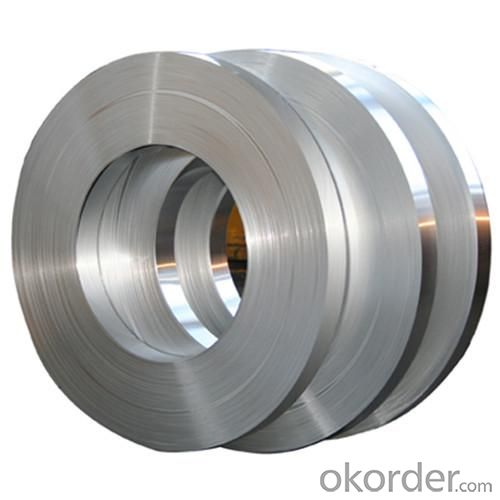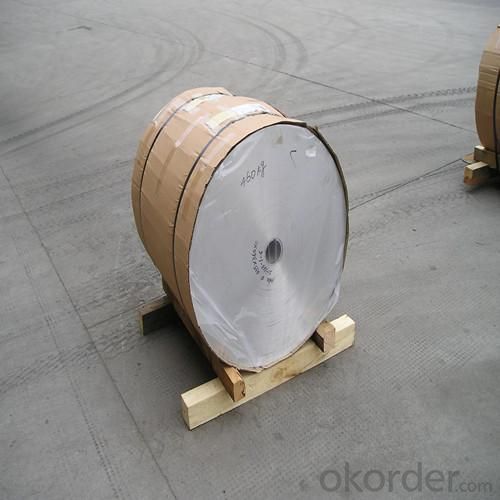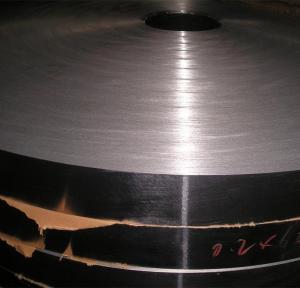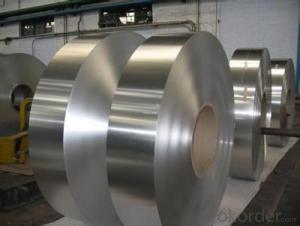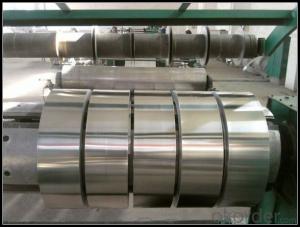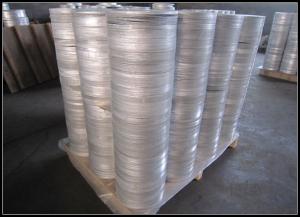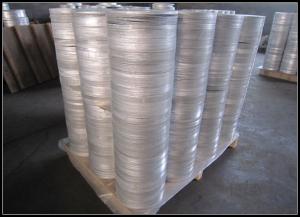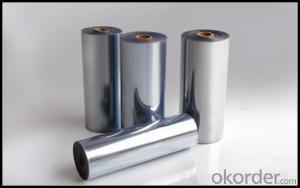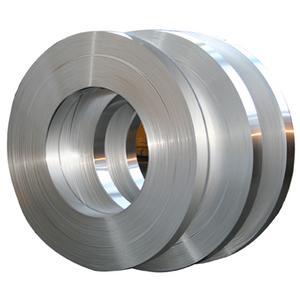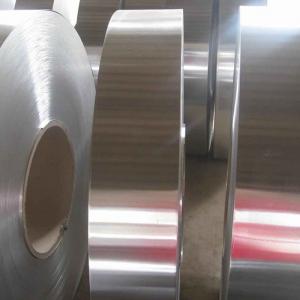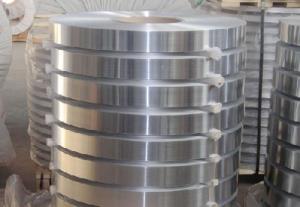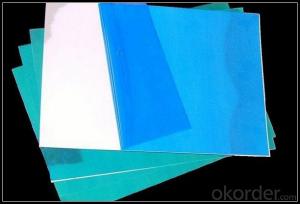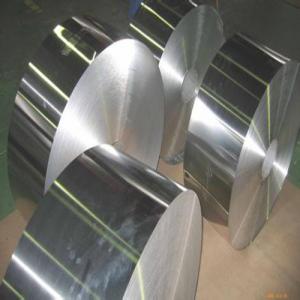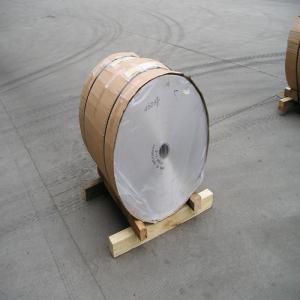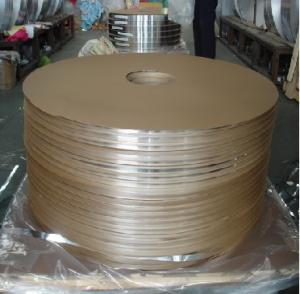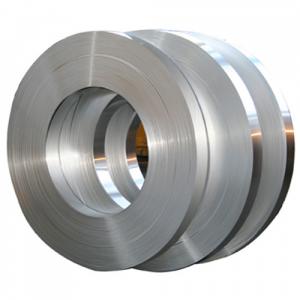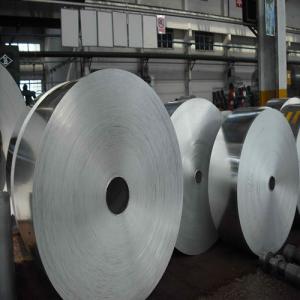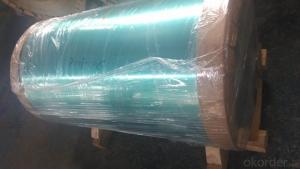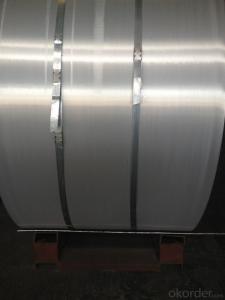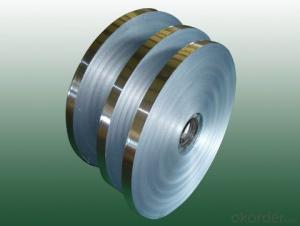1 Inch Aluminum Strips AA8011
- Loading Port:
- China Main Port
- Payment Terms:
- TT or LC
- Min Order Qty:
- 5 Tons m.t.
- Supply Capability:
- 1000 Tons Per Month m.t./month
OKorder Service Pledge
OKorder Financial Service
You Might Also Like
1. Specifications of Aluminum Strips AA8011
Alloy Number | AA8011 |
Temper | Temper H12, H14, H16, H18, H22, H24, H26, H32,HO, F |
Thickness | 0.10-500mm |
Diameter | 10mm- 2200mm |
Standard | GB/T3880-2006, ASTM, ISO, EU standard |
Special specification is available on customers' requirements.
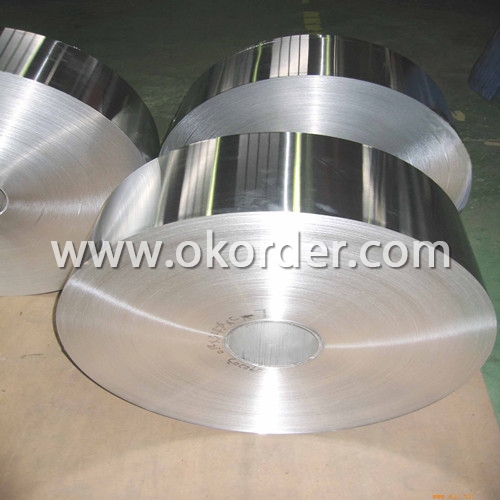
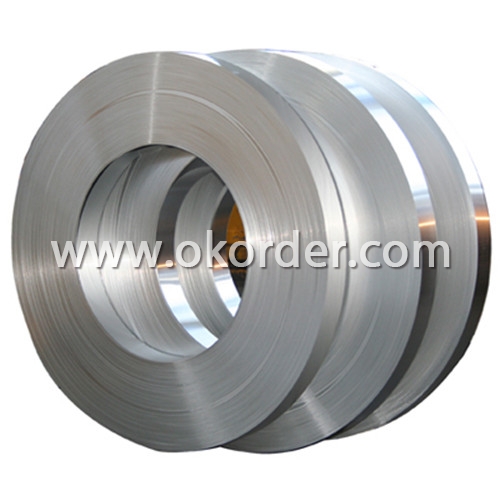
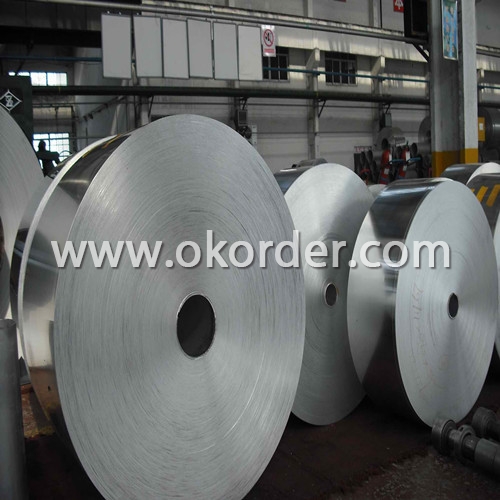
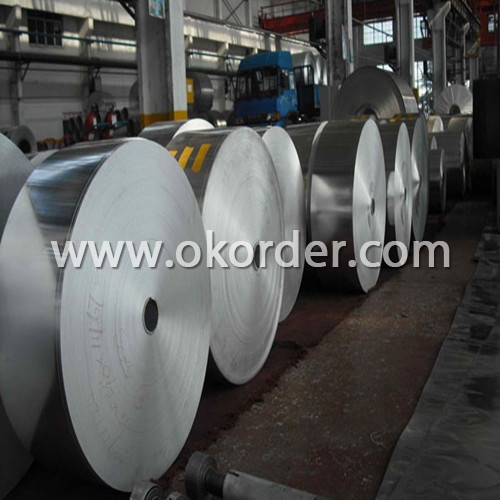
2. Usage/Applications of Aluminum Strips AA8011
Aluminum strips are widely used for PS printed materials substrate, building decoration materials, stamping products, building mirror materials, nameplate, insulation materials, aluminum plastic composite material, capacitor strip, transformer strip, welding parts, heat exchanger, clock surface and disk, kitchen utensils, reflecting apparatus etc.
3. Packaging & Delivery of Aluminum Strips AA8011
Packaging: Seaworthy package, bubble plastic bag inside, anti-moisture paper wrapped outside, covered with cartons, on wooden pallets, in containers. Pallet weight: Max. 2.30 tons.
Shipment: the goods will be delivered in 30 days after getting the buyer's payment.
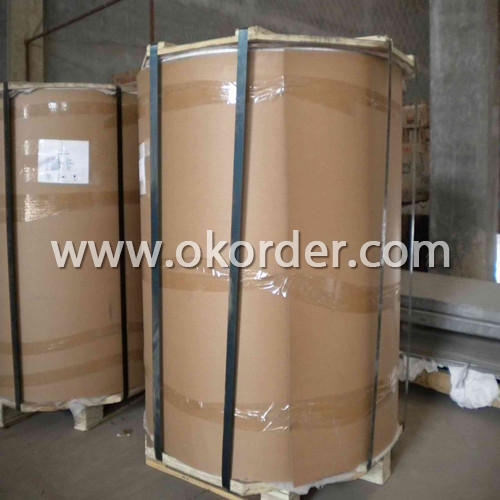
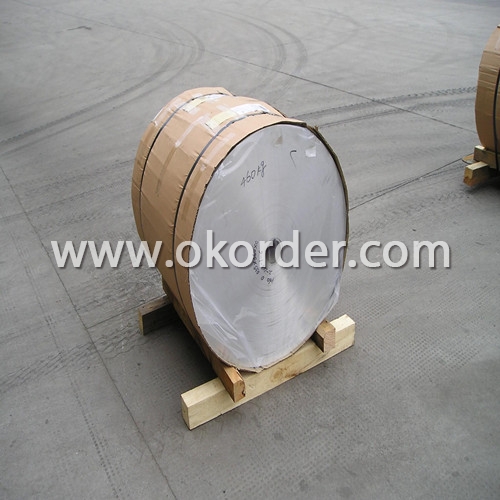
4. Production Flow of Aluminum Strips AA8011
Rolling--Annealing--Slitting—Sawing, Cut-To-Length, Shearing
- Q: This question asks for a comparison between two types of siding materials: aluminum and steel. It seeks to understand the distinct characteristics that set these two materials apart.
- <p>Aluminum and steel siding are both popular choices for exterior cladding, but they have several differences. Aluminum is lightweight, corrosion-resistant, and requires minimal maintenance, making it ideal for coastal areas. It also comes in a variety of colors and finishes. Steel siding, on the other hand, is more durable and can withstand harsh weather conditions. It is heavier and stronger than aluminum, but it may require more maintenance, such as painting or coating to prevent rust. Steel is also more energy-efficient due to its insulating properties. Both materials offer different benefits and are suitable for different applications based on the climate, design preferences, and budget.</p>
- Q: Aluminum foil tape insulation principle, why insulation?
- The air conditioner foil is a special material for the heat exchanger fin of an air conditioner, and an early air conditioner foil is a plain foil. In order to improve the surface properties of the plain foil, an anticorrosive inorganic coating and a hydrophilic organic coating are applied before forming to form hydrophilic foil. At present, hydrophilic foil accounts for 50% of the total amount of air conditioning foil, and its use ratio will be further improved. There is also a hydrophobic foil, so that the fin surface has hydrophobic function, prevent condensation water adhesion. Because of hydrophobic foil, the technology of improving surface defrosting needs to be studied further.
- Q: Is it possible to utilize aluminum strips for a personal roofing project?
- <p>Yes, you can use aluminum strips for your own roofing project. Aluminum is a popular choice due to its durability, lightweight, and resistance to corrosion. It's easy to work with and can be cut and shaped to fit various roofing designs. However, it's crucial to ensure proper installation, as aluminum expands and contracts with temperature changes, requiring appropriate fastening and sealing to prevent leaks. Always follow local building codes and consult with a professional if you're unsure about the installation process.</p>
- Q: Is it possible to utilize aluminum strips in the food packaging industry?
- <p>Yes, aluminum strips are commonly used in food packaging. They are valued for their excellent barrier properties against light, moisture, and gases, which help to preserve the freshness and quality of food. Aluminum's malleability also makes it easy to form into various shapes and sizes for different packaging needs. Additionally, aluminum is recyclable, contributing to sustainability efforts in the food industry.</p>
- Q: What types of aluminum strips are better suited for specific uses?
- <p>Yes, different types of aluminum strips are more suitable for specific applications based on their properties. For instance, 1100 series aluminum strips are pure and have excellent formability, making them ideal for deep drawing applications. 3003 series strips are commonly used for chemical equipment, shipbuilding, and aircraft structures due to their good corrosion resistance and weldability. 5052 series strips are known for their high strength and are often used in marine applications and transportation vehicles. 6061 series strips are popular for structural applications requiring strength and good corrosion resistance, such as in the construction and automotive industries. The choice of aluminum strip depends on the specific requirements of the application, including strength, formability, corrosion resistance, and environmental factors.</p>
- Q: This question asks about the durability and strength of aluminum strips for outdoor applications.
- <p>Aluminum strips are indeed strong enough for exterior use. They are lightweight, corrosion-resistant, and have high tensile strength, making them suitable for various outdoor applications such as siding, roofing, and fencing. Their resistance to weathering and low maintenance requirements add to their popularity in exterior settings. However, the specific strength and durability can vary based on the alloy composition and thickness of the strips, so it's important to select the appropriate grade of aluminum for the intended use.</p>
- Q: This question asks for a comparison between recycled aluminum strips and new ones regarding their quality and performance.
- <p>Recycled aluminum strips are generally comparable to new ones in terms of quality and performance. The recycling process allows for the recovery of aluminum's properties, maintaining its strength, durability, and malleability. In fact, recycled aluminum can be just as strong as new aluminum, and it often requires less energy to produce. However, the quality can depend on the recycling process and the source material. Properly recycled aluminum can be just as good as new, but improper recycling or contamination can affect the final product's quality. Overall, recycled aluminum is a sustainable and often equivalent alternative to new aluminum in many applications.</p>
- Q: This question asks for a step-by-step guide on how to attach aluminum strips to a roof or wall.
- <p>To install aluminum strips on a roof or wall, follow these steps: 1. Measure and mark the area where the strips will be installed. 2. Clean the surface thoroughly to ensure proper adhesion. 3. Cut the aluminum strips to the required length using a hacksaw or tin snips. 4. Apply a bead of construction adhesive along the top edge of the strip. 5. Press the strip firmly into place, starting from one end and working your way along the surface. 6. Use a level to ensure the strip is straight and secure it with nails or screws at regular intervals. 7. Fill any gaps between the strips and the surface with caulk to create a watertight seal. 8. Finish with a coat of paint or sealant to match the surrounding area and protect the aluminum from weathering. Always follow the manufacturer's instructions for the specific adhesive and sealant products you are using.</p>
- Q: This question asks if there are any safety concerns when using aluminum strips in construction projects.
- <p>Yes, there are safety issues related to using aluminum strips in construction. Aluminum, while lightweight and corrosion-resistant, can have issues with strength and load-bearing capacity, especially in heavy-duty applications. It can also be a fire hazard due to its melting point, which is significantly lower than that of steel. Additionally, aluminum can react with other materials, leading to galvanic corrosion. Proper engineering and safety measures must be taken to mitigate these risks, including using appropriate alloys, ensuring adequate structural support, and implementing fire safety protocols.</p>
- Q: This question asks about the potential environmental effects resulting from the use of aluminum strips.
- <p>The environmental impacts of using aluminum strips include energy-intensive production processes that contribute to greenhouse gas emissions, potential water pollution from manufacturing, and solid waste generation. Aluminum production requires significant amounts of electricity, often from non-renewable sources, which can exacerbate climate change. Additionally, the mining and refining of bauxite, the primary source of aluminum, can lead to habitat destruction and water contamination. However, aluminum is also highly recyclable, and recycling reduces energy consumption and waste. The overall environmental impact depends on the balance between production, use, and recycling practices.</p>
1. Manufacturer Overview
| Location | Henan,China |
| Year Established | 2002 |
| Annual Output Value | Above US$200 Million |
| Main Markets | Mid East;Eastern Europe;North America |
| Company Certifications | ISO 9001:2000;ISO 14001:2004;OHSAS 18001 |
2. Manufacturer Certificates
| a) Certification Name | |
| Range | |
| Reference | |
| Validity Period |
3. Manufacturer Capability
| a) Trade Capacity | |
| Nearest Port | Shanghai |
| Export Percentage | 30%-50% |
| No.of Employees in Trade Department | 21-50 People |
| Language Spoken: | English;Chinese |
| b) Factory Information | |
| Factory Size: | Above 100,000 square meters |
| No. of Production Lines | Above 10 |
| Contract Manufacturing | OEM Service Offered;Design Service Offered |
| Product Price Range | Average |
Send your message to us
1 Inch Aluminum Strips AA8011
- Loading Port:
- China Main Port
- Payment Terms:
- TT or LC
- Min Order Qty:
- 5 Tons m.t.
- Supply Capability:
- 1000 Tons Per Month m.t./month
OKorder Service Pledge
OKorder Financial Service
Similar products
Hot products
Hot Searches
Related keywords
